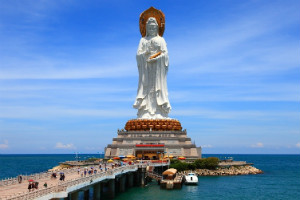
Chinese-operated resorts on the Hainan Island are reportedly gearing up to launch entertainment bars that would feature gaming tables where players would be able to wager real money and redeem their winnings at local hotels, restaurants, and shops, local news outlets report citing unnamed sources familiar with the developments.
The move comes after a Hainan court ruled last December that a similar entertainment bar previously operated by a local resort did not violate laws.
Reports emerged earlier this year that the Chinese government could allow the provision of sports betting and sports lotteries services on the island in a move that would hopefully boost tourism rates. Lawmakers later on confirmed that the possibility was indeed under consideration. People familiar with the ongoing discussions have also revealed that any gambling expansion on the island could eventually pave the way for the legalization of casinos.
Macau is currently the only place where casino gambling is legal in China. While there have been speculations that the special administrative region’s decades-long casino monopoly could be broken eventually with the launch of casino venues on Hainan, the government has not shown any clear indications that such a possibility is under consideration.
President Xi Jinping’s administration has traditionally been very tough on casino gambling and criminal activities that are often related to the industry. The country’s top official initiated in 2013 a huge crackdown on corruption and illicit money flows to and from China that resulted in its popular casino hub suffering from massive monthly gambling revenue declines for more than two and a half years.
Entertainment Bars with Gaming Tables

However, the bar was closed in 2014 and the resort’s owners were brought to prosecution. Other resorts on the island had similar plans to manage entertainment bars, but had to scrap these due to the legal uncertainty regarding their operation. As mentioned above, late last year a local court ruled that the operation of such facilities did not break laws.
Known for its beautiful beaches and diverse entertainment options, Hainan has been looking to draw more international tourists. According to recent data reports, the island has been struggling to attract as many foreign visitors as it has wished over the past several years, but a gambling-themed entertainment model is hoped to help numbers go up.
Margaret Huang, a Hong Kong-based Bloomberg Intelligence analyst, argued that the Chinese government will have to overcome different challenges while it is trying to shape its attitude toward the above-mentioned model and to find the right balance between regulation and the creation of a business environment that would allow for the island’s economic and tourism development.



























